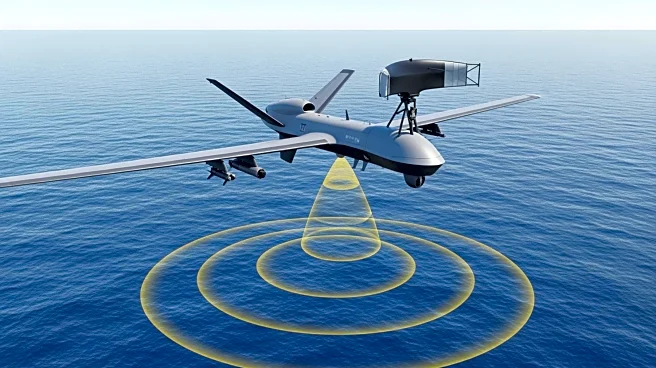What's Happening?
The Pentagon has shifted its focus to conducting military strikes against suspected narcotraffickers in the eastern Pacific Ocean. This strategic change is based on intelligence suggesting stronger links
between cocaine transport routes from Colombia and Mexico to the U.S. The recent strikes have targeted vessels believed to be involved in drug trafficking, with the administration citing national security concerns. However, the legal basis for these actions remains unclear, as military lawyers have been absent from congressional briefings. The strikes have resulted in significant casualties, raising ethical and legal questions about the use of military force in these operations.
Why It's Important?
The Pentagon's shift to the Pacific reflects a broader strategy to disrupt drug trafficking routes that directly impact the U.S. market. This approach underscores the administration's commitment to combating drug-related threats but also highlights the challenges of balancing military action with legal and ethical considerations. The absence of clear legal justification and evidence for the strikes could lead to increased scrutiny from lawmakers and human rights groups. The operations also have implications for U.S. relations with countries in the region, particularly those affected by the strikes.
What's Next?
The Pentagon is expected to continue its focus on the Pacific, with future strikes likely targeting vessels linked to U.S. drug markets. However, the administration may face growing demands for transparency and accountability from Congress and international bodies. Legal challenges and diplomatic tensions could arise if the strikes continue without clear justification. The situation may prompt a reevaluation of U.S. military strategies and their alignment with international law and human rights standards.








